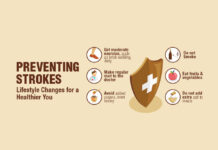
Add a multivitamin to fill in the gaps
By: Dr. Joyce Johnson
Through proper nutrition, the body should receive the recommended daily value of vitamins and minerals that it requires. Yet for some, it can be difficult to maintain good eating habits while keeping close track of all of the food that you put into your mouth—especially with picky eaters. In these cases, a daily multivitamin and mineral can help to supplement the missing nutrients and may be a great choice for you and your family’s routine.
More than diet
Many people believe that if you have a balanced and healthy diet, a multivitamin and mineral is unnecessary. In an ideal situation, you should be able to get all the vitamins and minerals you need from food; however, this is not the case for a lot of people. Some health conditions, such as inflammatory bowel disease, celiac disease, diabetes, and gastric bypass surgery, to name a few, eliminating certain foods from your diet, and some prescription medications can cause you to be at risk for vitamin deficiencies. As well, excess stress can lead to an increased utilization of bodily nutrients and an increased demand.
The typical North American diet tends to fall short on achieving the recommended intake of fruits and vegetables. According to the 2014 Canadian Community Health Survey, about four in 10 Canadian adults reported that they consumed fruit and vegetables five or more times per day—just over half of the recommended daily number of servings by Health Canada. Also, according to the Journal of Pediatrics more than one in three children and teenagers do not meet the recommended intakes for calcium and vitamin D.
Science says
In a study on dietary supplement use, researchers have found that supplements help adults meet the recommended daily intake of some minerals (Bailey et al., 2011). Another study found that children and teens, aged nine to 18, taking supplements had an increase in their micronutrient status in their diets.
Researchers have discovered that a daily multivitamin supplement significantly, but modestly, reduced the risk of total cancer in middle-aged and older men (Gaziano et al., 2012). More recent research has found an association between multivitamin and mineral use for more than three years and reduced cardiovascular disease mortality risk for women (Bailey et al., 2015). As well, a correlation between multivitamin use and beneficial effects on mood along with elevated B vitamin levels and lowered homocysteine levels in healthy young adults (White et al., 2015).
What to look for
Choose a multivitamin that is specific to the different health needs of your family. Gender and age-specific multivitamins can help you to address the needs that the body may have at different stages of life. Your multivitamin should contain non-GMO ingredients and should be free of artificial sweeteners, colours and preservatives.
Although the best means of obtaining your vitamins and minerals is from a healthy diet, adding a multivitamin and mineral supplement may offer you some insurance.











